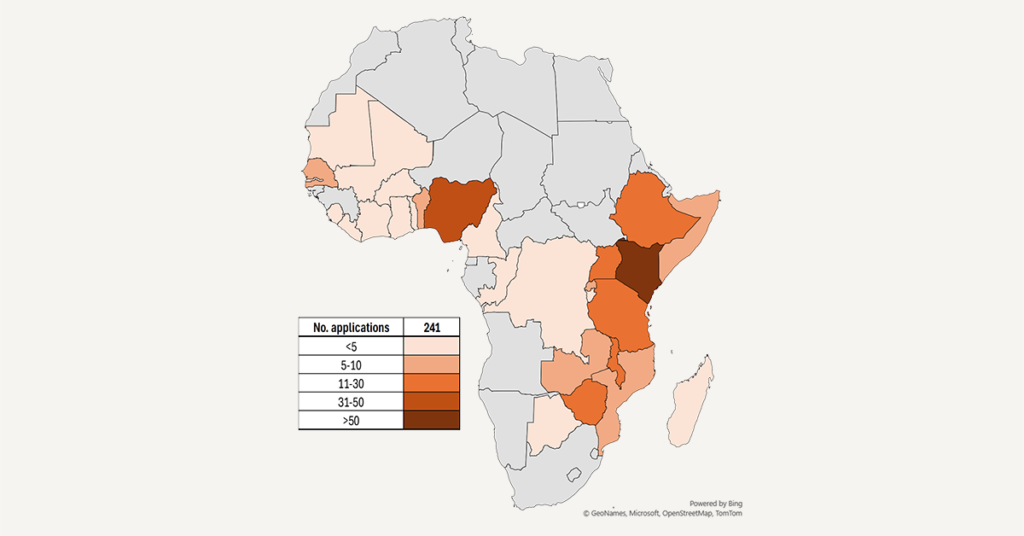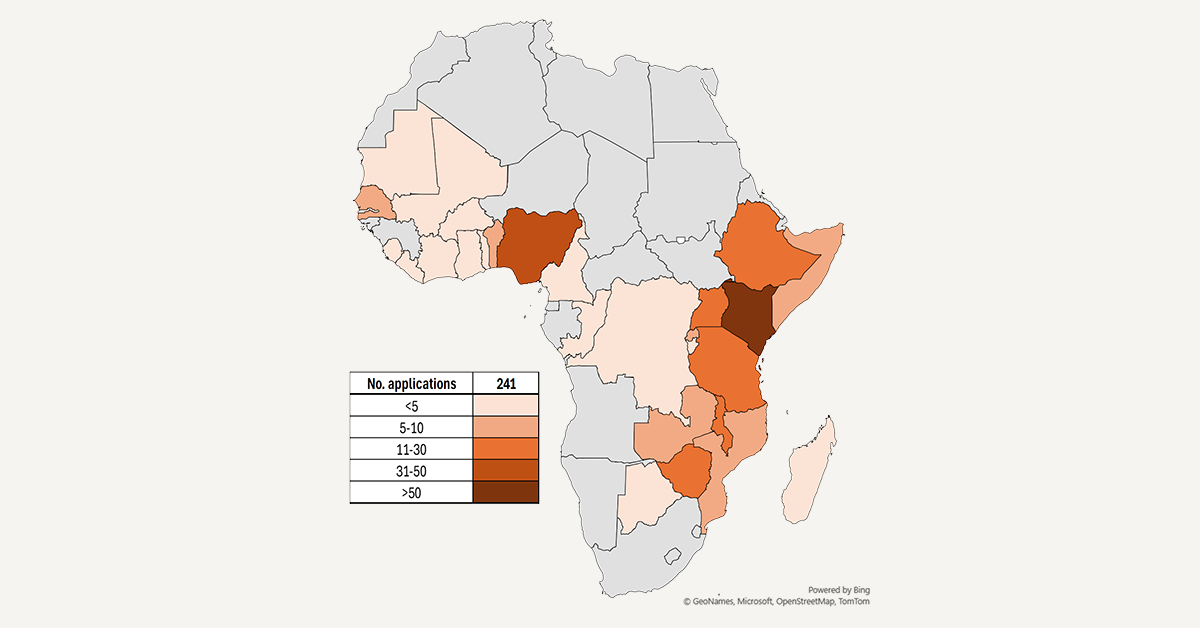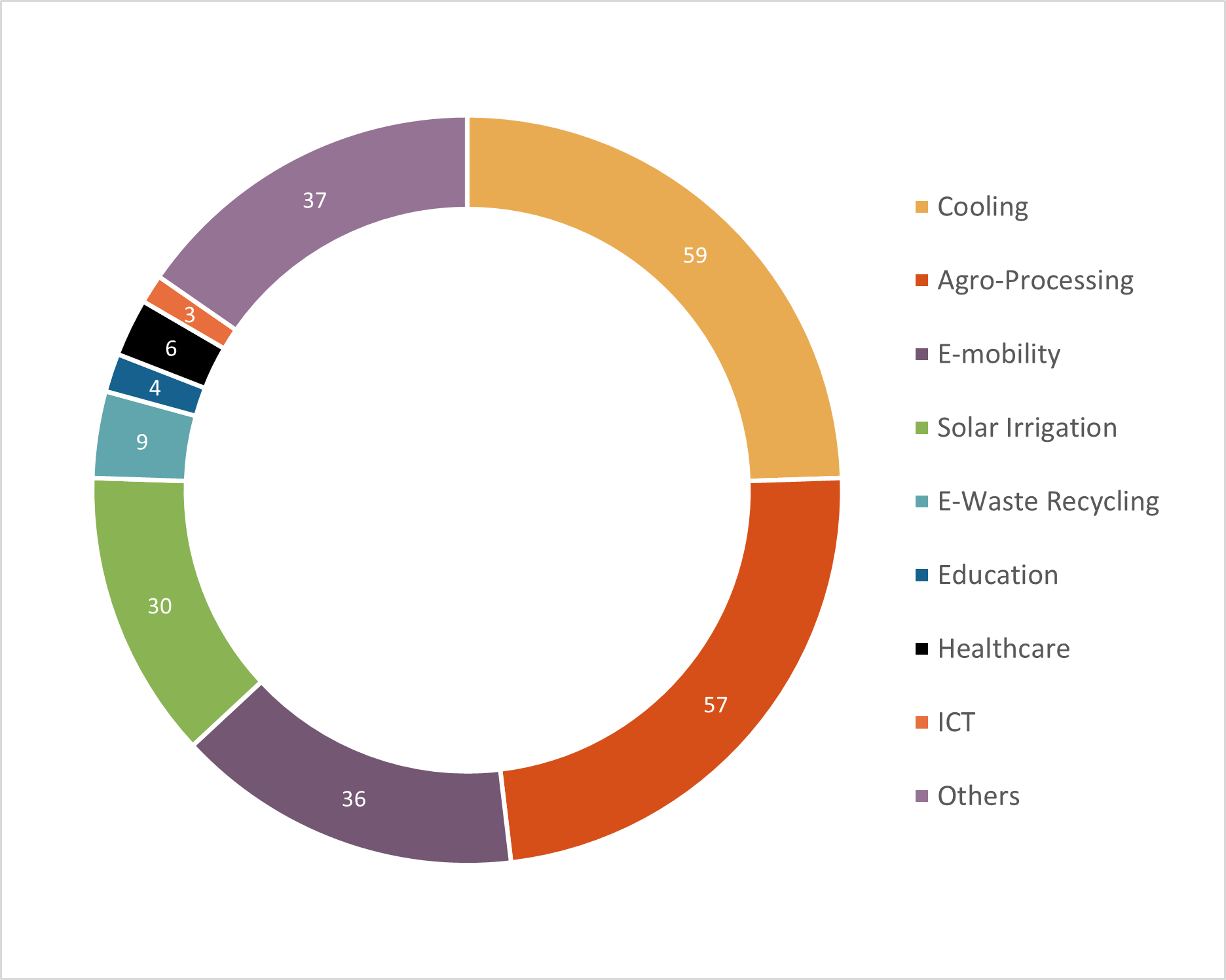
Responses to the recent PREO open call for Africa-focused projects can offer some encouraging insights into productive use of renewable energy (PURE) sector in sub-Saharan Africa.
With a total of USD 3 million available in this round of grant funding, PREO invited applications for business models demonstrating the viability of PURE solutions, across sectors including agro-processing, cooling, solar irrigation, e-waste recycling, textile production, e-mobility, education, healthcare, ICT, and street lighting.
The level of response to the open call was staggering – with 241 applications submitted meeting the call’s core criteria, seeking a combined USD 50.08 million in catalytic grants, and offering USD 47.21 million in co-financing. The call was oversubscribed by 17 times, underlining the substantial demand for funding to support and scale innovative business models that have the potential to drive demand for renewable-based energy solutions.
Applications were received from across 29 countries – with Kenya, Nigeria, Uganda, and Ethiopia constituting the highest number of submissions. See Figure 1 for a breakdown of applications submitted per country.

Kenya and Nigeria had the highest number of applications and were notable for the substantial number of PURE enterprises that were established post-2020. This is an encouraging trend that signals a strong and growing demand in these regions, with the PURE sector attracting new entrepreneurship opportunities, investments, business models and innovative solutions.
Another promising trend across all regions was the predominance of enterprises owned mostly by local entrepreneurs, with 79% of all applicants falling into this category. Zimbabwe (100%) and Nigeria (97%) stood out in this criteria, demonstrating the opportunities for homegrown entrepreneurship in these countries.
Furthermore, most applicants (91%) were for-profit entities, signaling an increasing private sector-led participation among enterprises driving innovation and growth by leveraging clean energy.
Agro-processing and cooling emerged as the sectors most represented, followed by irrigation, electric mobility, recycling, education, healthcare and ICT. See Figure 2 for a breakdown of applications submitted per country (label the graph below Fig 2). This highlights the vast potential for clean energy applications to drive economic growth and climate resilience, particularly within agricultural and food systems.

The response to this open call paints a picture of a dynamic and evolving clean energy landscape across sub-Saharan Africa. With innovative solutions emerging across a broad range of sectors, it is clear there is significant potential for investment in this region to support commercialisation of renewable energy enterprises, which in turn can create local ownership and employment opportunities, support sustainable development and bolster climate resilience.